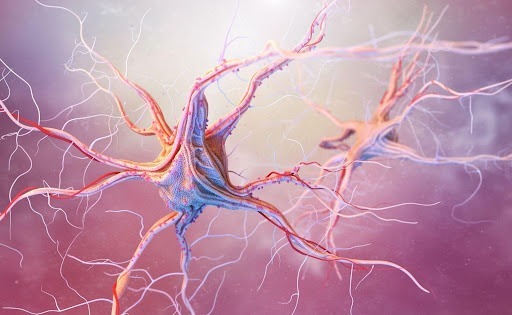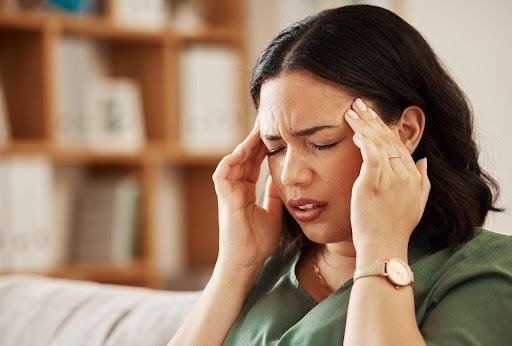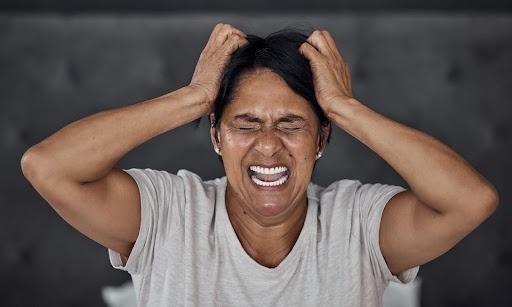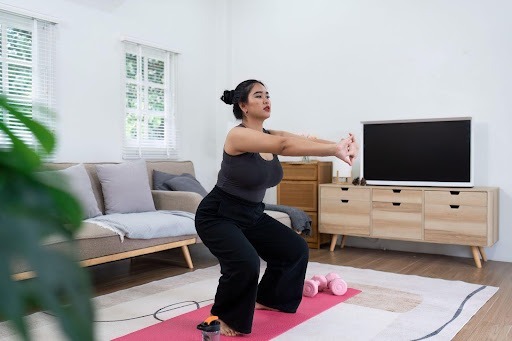Understanding Anxiety During Menopause – Symptoms and Solutions
Unveiling the Connection Between Menopause and Anxiety
Menopause marks the end of a woman’s reproductive years, typically between 45 and 55. It is officially diagnosed after a woman hasn’t had her period for 12 consecutive months. While it’s a natural part of aging, menopause can bring a range of symptoms that significantly affect both physical and mental well-being. Among these symptoms, anxiety during menopause is one of the most common, yet often overlooked. This blog aims to explore the connection between menopause and anxiety, offering valuable insights.
Defining Anxiety
Anxiety is a normal feeling of worry or fear that everyone experiences from time to time. However, when anxiety becomes overwhelming and starts to interfere with daily life, it can be exhausting. According to the World Health Organization (WHO), about 300 million people worldwide suffer from anxiety disorders, making it the most common mental health condition globally.
The Connection Between Menopause and Anxiety
The connection between menopause and anxiety is strong and complex. During menopause, declining estrogen and progesterone levels cause various symptoms like hot flashes, night sweats, mood swings, and sleep troubles, significantly impacting a woman’s quality of life. Hormonal changes directly affect brain chemistry, influencing mood and emotional regulation. Estrogen helps produce serotonin, a neurotransmitter regulating mood, and decreased estrogen levels can lead to increased anxiety and depression. Physical symptoms like hot flashes and sleep problems can also contribute to anxiety, making menopause a psychologically distressing experience.

A study in the Journal of Midwifery and Reproductive Health found that 70% of Indian women experienced anxiety during menopause. Another study in the Indian Journal of Psychiatry revealed that menopausal women are more likely to experience anxiety and depression than those who haven’t yet reached menopause.
The impact of these hormonal shifts extends beyond emotional well-being, influencing cognitive functions and overall mental health. Women may experience difficulty concentrating, memory lapses, and increased irritability. The interplay of physical and psychological symptoms often leads to heightened stress levels, creating a cycle that exacerbates menopause anxiety symptoms and further diminishes the quality of life.
Manifestations of Anxiety During Menopause
Dealing with menopausal anxiety can be challenging, as it manifests in various ways. It’s not just about feeling worried or stressed. Here are some ways menopause anxiety symptoms can show up:
Physical Symptoms
- Palpitations or racing heartbeat
- Shortness of breath or feeling like you can’t catch your breath
- Trembling or shaking
- Nausea or stomach discomfort
- Headaches or migraines
- Fatigue or low-energy
- Tense muscles or muscle aches

These physical symptoms can be intense and frightening, making you feel like you’re having a heart attack or losing control.
Emotional Changes
- Irritability or restlessness
- Feeling on edge or easily frustrated
- Moodiness or emotional swings
- Anger or rage
- Feeling overwhelmed or like losing control
- Disconnection from others or activities once enjoyed

Sleep Disturbances
Hot flashes and night sweats can disrupt sleep patterns, leading to:
- Insomnia or difficulty falling asleep
- Frequent waking during the night
- Waking up too early or feeling unrefreshed
- Daytime fatigue or low-energy
Hormonal Changes
The decline in estrogen levels affects neurotransmitters like serotonin and dopamine, which regulate mood and emotions. This hormonal shift can lead to:
- Mood swings or emotional changes
- Anxiety or depression
- Difficulty concentrating or memory problems
- Changes in appetite or weight
Life Changes
Menopause often coincides with significant life changes like:
- Aging parents or caregiving responsibilities
- Growing children or empty nest syndrome
- Career transitions or retirement
- Relationship changes or loss

These stressors can trigger anxiety and make you feel like you’re losing control. Understanding these manifestations is crucial for dealing with menopausal anxiety effectively.
Managing Anxiety During Menopause
Dealing with menopausal anxiety can be overwhelming, but there are ways to manage and treat it. Addressing anxiety during menopause is essential to improve overall well-being. Let’s explore a few ways in which we can manage these symptoms.
Stress-Reducing Techniques
Managing anxiety during menopause requires targeted stress reduction techniques. Practices like meditation, deep breathing, and yoga can help calm the mind and body, reducing symptoms and promoting relaxation.

- Meditation: Start with short sessions (5-10 minutes) and gradually increase as you become more comfortable. Guided meditation apps like Headspace or Calm can be useful.
- Yoga: Find a local class or follow online tutorials tailored to menopausal women. Certain poses, like the child’s pose and downward-facing dog, can help calm the mind and body.
- Deep Breathing: Take slow, deep breaths in through your nose and out through your mouth, focusing on the sensation of the breath. Try inhaling for a count of four, holding for a count of seven, and exhaling for a count of eight.
- Progressive Muscle Relaxation: Tense and then relax different muscle groups in your body, starting with your toes and moving up to your head.
- Mindfulness: Practice being present in the moment, paying attention to your thoughts and emotions without judgment. Mindful walking or eating can be beneficial.
- Journaling: Write down your thoughts and feelings to process and release them.
- Aromatherapy: Certain scents like lavender and chamomile can promote relaxation and reduce anxiety.

Lifestyle Changes
Making lifestyle changes can help alleviate anxiety during menopause. Simple tweaks to your daily routine, such as exercise and healthy eating, can have a significant impact.

- Exercise: Find an activity you enjoy (walking, swimming, cycling) and aim for at least 30 minutes a day. Exercise releases endorphins, which can improve mood and reduce anxiety after menopause.
- Diet: Fuel your body with a balanced diet rich in whole foods, fruits, and vegetables. Avoid sugary and processed foods that can aggravate anxiety.
- Sleep Habits: Aim for 6-7 hours of sleep each night. Establish a relaxing bedtime routine to signal your body that it’s time to wind down.
- Omega-3s: Omega-3 fatty acids found in fatty fish, flaxseeds, and walnuts can help reduce anxiety.
Seeking Support
Seeking support is a crucial step in managing anxiety during menopause. Connecting with others who understand what you’re going through can make all the difference.
- Therapy: Cognitive Behavioral Therapy (CBT) is effective in managing anxiety during menopause, helping women identify and change negative thought patterns.
- Hormone Replacement Therapy (HRT): Replenishing estrogen and progesterone levels can help regulate mood and reduce anxiety. Consult with your healthcare provider for guidance.
- Medications: Medication can help regulate hormonal imbalances and alleviate anxiety symptoms. Always take medication under the guidance of your healthcare provider.
- Support Groups: Join a local support group or online community to connect with other women who understand what you’re going through.
- Educational Resources: Read books and utilize reputable websites and apps to access resources and tips.

Key Takeaway
Managing anxiety during menopause is a journey that involves understanding your body, adopting healthy lifestyle changes, and seeking support when needed. It’s important to remember that you’re not alone in this experience. Connecting with others who are going through similar challenges can provide comfort and valuable insights. Embracing this phase of life with positivity and resilience can help you navigate through the ups and downs of menopause. Remember, it’s okay to seek help from healthcare professionals or therapists if anxiety becomes overwhelming. By taking small steps and being kind to yourself, you can effectively manage anxiety and embrace menopause as a natural part of life’s journey.
If you’re struggling with anxiety during menopause, Miror is here to help. Download the Miror app now and get your first psychologist consultation today. Take the first step towards a healthier, more balanced life with Miror.




